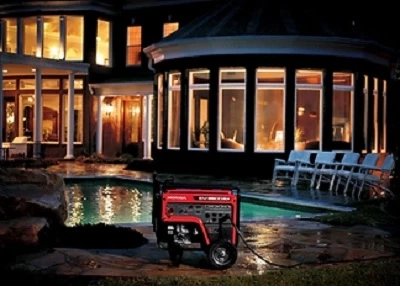In a city like New York, power outages are not uncommon. When the power goes out, it can be a significant inconvenience. That's why having a backup generator is so important. A generator can keep your lights on, your fridge running, and your phone charged - even when the power is out. If you're looking for peace of mind in a blackout, consider investing in a backup generator.
I. Introduction to the Idea of a Backup Generator
With frequent power outages and storms causing electrical disruptions, individuals and businesses may find installing a backup generator a wise decision. Backup generators can provide quick power restoration when faced with a sudden loss of electricity, meaning that you don't have to suffer through hours of disruption caused by utility failures. The backup generator offers superior reliability in the face of unexpected circumstances. It can deliver increased safety and security, ensuring that all your essential needs remain operational in unfavorable conditions. With a reliable team available for installation and repair help whenever needed, never be left in the dark again when it matters most.
II. A Brief Description of the Benefits of Having a Backup Generator
A backup generator can provide invaluable protection for any property owner against the unpredictability of power outages. Power outages are increasingly common as more and more strain is placed on the outdated electrical grid, and having a generator ensures that your home or business remains powered without interruption. Backup generators also offer peace of mind: should an outage occur due to anything from a storm causing downed power lines to tripped breakers caused by a surge in electricity demand, your system will be ready to kick into gear and keep essential services running. Many modern generators can be connected to existing systems with minimal setup cost and hassle, creating redundant layers of protection for those who take the time to invest in one. In short, backup generators offer security, reliability, and convenience in the face of an unreliable power grid, making protection against outages almost essential.
III. Listing the Different Types of Backup Generators Available
There is a backup generator, depending on its specific needs. Backup generators provide a necessary backup power source during a power outage. There is a wide range of options, from residential to commercial backup generators. Portable backup generators are lightweight and can be easily moved and used when needed. When shopping for backup generators, you should consider stationary or standby backup generators as they are powerful enough to run an entire facility and can be automatically connected to your electrical system. An inverter backup generator offers clean and quiet power, now sought after by many businesses.
IV. How to Choose the Right Backup Generator for Your Needs: A Brief Account
A backup generator can provide backup power during a power outage. When selecting the right backup generator, it is essential to consider your needs and the size of the generator required. Evaluate how much electricity will be needed, such as whether certain appliances or medical equipment need backup power. Also, consider installation requirements, budget, and where the generator will be placed. Find a reputable dealer with experience that can recommend the appropriate size backup generator for your particular needs and install it according to manufacturer instructions. Having a backup generator in place can give you peace of mind knowing your family will have the necessary power when needed.
V. How to Use and Maintain a Backup Generator: Useful Tips You Must Know
Backup generators can be a welcome backup during electrical outages. You should take essential steps to get the most out of your backup generator and avoid dangerous malfunctions. Begin by performing regular maintenance on the generator, such as routine oil changes and filter checks. It is also essential to regularly examine cables, plugs, and other electrical parts to ensure everything is in perfect working order. Additionally, backup generators should only be powered outdoors to avoid leaking fuel or having smoke released indoors. Remember to keep flammable materials away from the generator when it's powered on and ensure all ventilation pipes are not blocked; otherwise, cooling problems could occur. Following these simple tips will help ensure that your backup generator is always running safely and effectively should an outage occur.
VI. Closing Thoughts
A backup generator can be a lifesaver during an extended power outage. It provides the electricity you need to keep your lights on, your refrigerator running, and your home warm or cool. There are many different types and sizes of generators available, so choosing the right one for your needs is essential before making a purchase. Once you have a generator, follow all manufacturer's instructions on proper use and maintenance. By taking these steps, you can ensure that your backup generator will be ready when you need it most.


